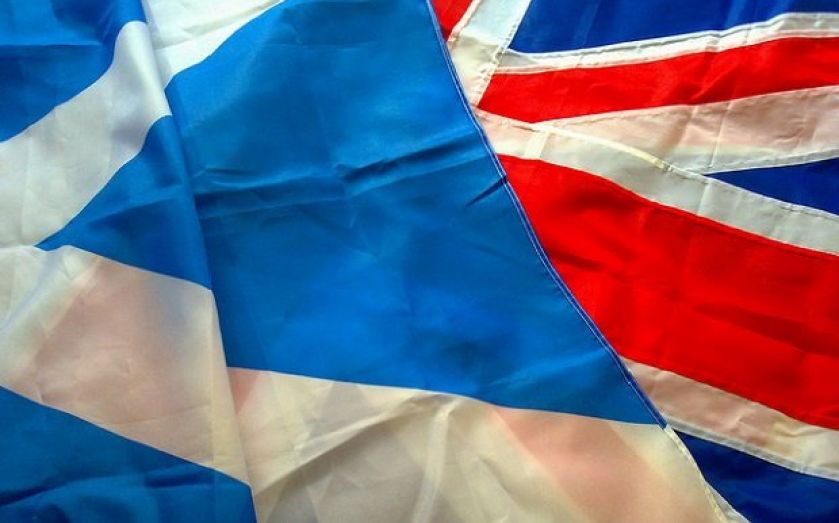Scottish independence: How a Yes vote would “markedly lower” GDP growth

With the polls tightening and the possibility of a break-up of the United Kingdom looking ever more credible, politicians and investors are weighing up the possible consequences of a Yes vote.
Axa Investment Managers has released a research note examining the economic aftermath for the remaining part of the UK in the event of a Yes vote.
The uncertainty and negotiations following the vote would be the most immediate and obvious impact on "rump" UK (rUK).
Sterling would suffer declines as suggested by recent events, and the UK may see a worsening in its perceived credit outlook.
GDP growth would be "markedly lower" and there would be a serious fall in business investment growth in Scotland and a reduction in new UK investment as companies with cross-border activities consider they're organisational structures, according to Axa.
In 2015 investment growth would be close to flat rather than the 10 per cent that may otherwise be the case if the Scots vote No. This slower investment growth would hit GDP this may be exacerbated by a slower pace in employment decisions.
Axa's bottom line; "We forecast GDP growth to be 0.25 per cent lower in 2014 than in our baseline scenario and 0.75 per cent lower in 2015. On current forecasts this would see GDP growth just below three per cent in 2014 and below two per cent in 2015, before accelerating back to 2¼ per cent for 2016, broadly in line with our baseline forecast".
Furthermore, this would have implications for the Bank of England's (BoE) monetary policy committee. The BoE may be forced to consider an even more lax approach to monetary policy, delaying a rise in interest rates until mid-way through 2016.
There is one further scenario that Axa draw attention to in case of a Yes vote. The Scots may well vote for independence on 18 September but after the details of independence have been negotiated Axa say there has been a suggestion there could be an "are you sure" referendum.
However, author of the research David page concluded: "This would not change the years of uncertainty the UK would face following a vote for independence, nor reduce the expected cost of that uncertainty on the UK growth outlook".
The impact of Scottish secession was further highlighted today with BP Group chief executive Bob Dudley saying the prospects for the North Sea were "best served by maintaining the existing capacity and integrity of the United Kingdom".
The pensions and insurance giant Standard Life added its voice to the debate saying it would move large parts of its business south of the border if Scotland voted for secession.